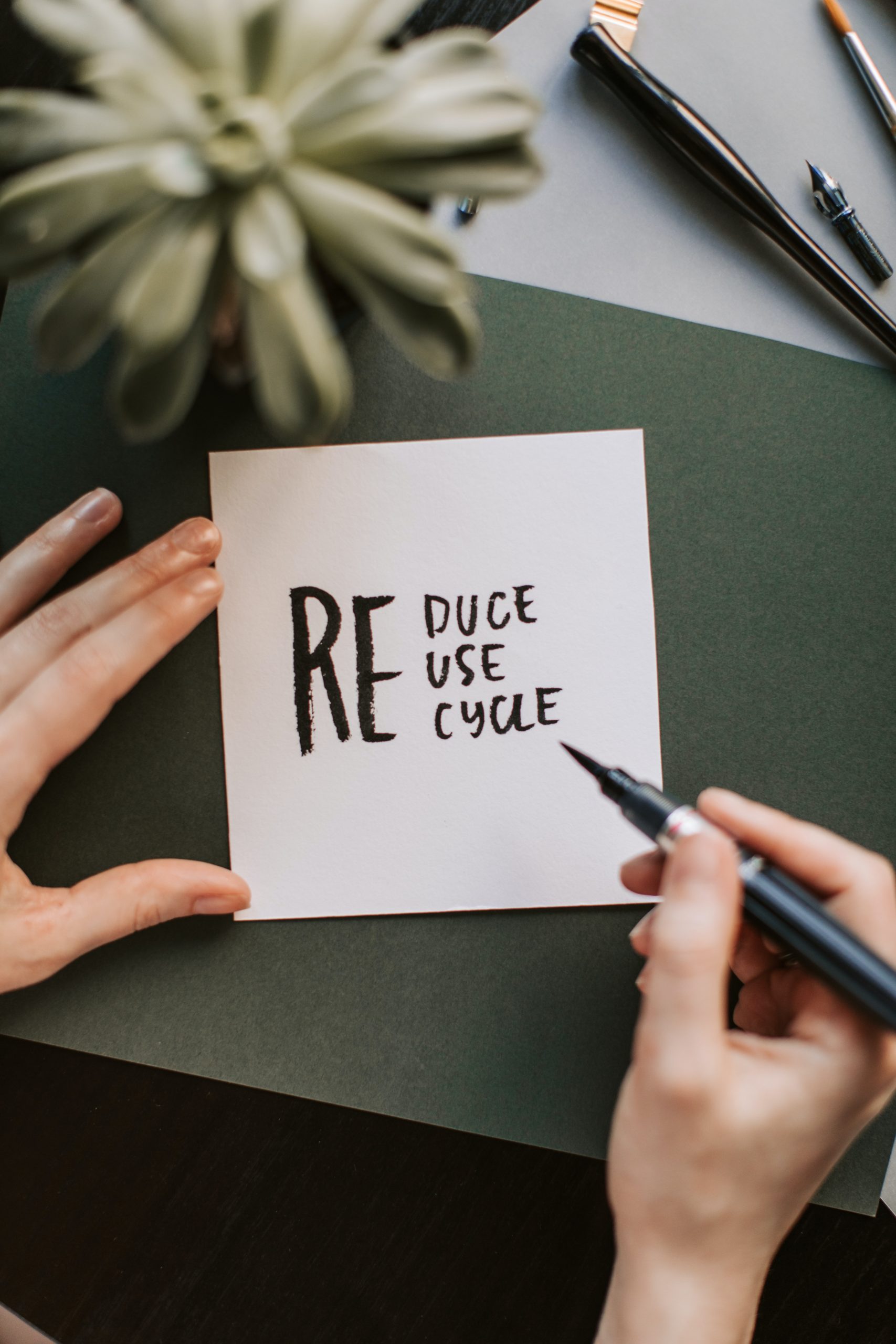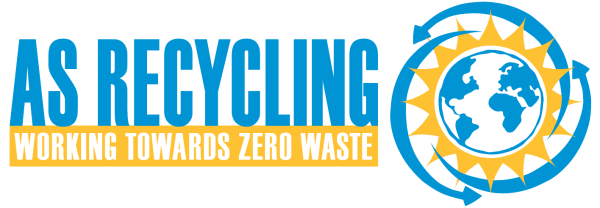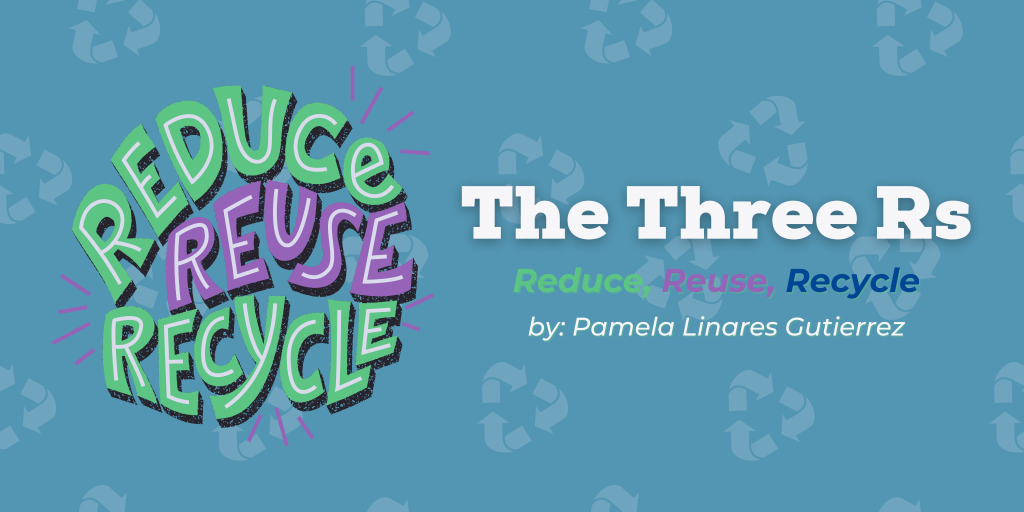Which is most important?
The Three Rs is a slogan that many people learn in grade school; reduce, reuse, recycle. It has long been used as a sustainable proverb; a way of thinking about waste management in an attempt to protect the environment. But the words themselves do not paint the whole picture. Which “R” is most important? Is there a most important “R”? Why do people focus so much on the third “R”, recycling, as opposed to the other two?
You may assume because of our department name that we believe that recycling is the most important “R”. The truth that most waste management proponents, including ourselves, will tell you, is that recycling, while incredibly important and valuable, is actually at the bottom of the waste management hierarchy. Read on to find out why.

Recycling; The Good and the Not So Good
It’s no secret that we here at ASR are proponents of recycling waste. Recycling reduces the amount of waste sent to landfills and incinerators, conserves natural resources such as wood and water, prevents pollution, conserves energy, and much more. But recycling alone cannot beat the ever-increasing problems associated with waste production. Why is that?
The problem with recycling is the perception it has in society and among those that are less well-versed in sustainability. Promoting recycling above all else can cause problems because people might be inclined to believe that their consumption can be offset by recycling.
In a study published in the Journal of Consumer Psychology, researchers found that “consumers may view the ability to recycle a product as a ‘get out of jail free card’ that makes consumption more acceptable… thus leading to higher consumption levels.” In the same paper, they conducted a study where they looked at how many paper towels people used in a restroom when there was a recycling bin present vs. no recycling bin. They found that “the average daily restroom paper towel usage per person increased after the introduction of a recycling bin.” They believe that people are more likely to consume more when recycling is an option because it almost alleviates some of the guilt associated with waste production.
Recycling is often the most popular of The Three Rs because it is, quite simply, the easiest. It is easier to buy products without considering the waste production, and then recycle what you can, than to actively make purchasing decisions with waste management in mind. Recycling is a more accessible avenue toward waste management because it requires less effort on the part of the consumer. This is likely why we have seen, heard, and learned more about recycling than the other two Rs.
So, is promoting recycling bad? Absolutely not! Recycling is much better than allowing waste to go to a landfill or incinerator, and there are many benefits to recycling (which you can find out about on our website and here.) The takeaway is that promoting recycling as the solution to waste management can cause problems. Recycling, the third “R,” has been at the forefront of waste management strategies and is often the most touted method for environmental protection. But the other two “Rs” are just as, if not more important.
The Other Two Rs; Reduce & Reuse
Waste reduction and reuse are really the stars of the show. The best way to manage your waste is by not making any waste in the first place, if possible! There are many forms of waste reduction including reducing your packaging purchases, avoiding single-use products, buying items in bulk, etc. The Zero-Waste movement is picking up speed across the world, so there are a lot of ideas and tips online for accessible waste reduction. Check out UCSB’s Zero Waste Committee for tips on how to get involved. For some Santa Barbara specific tips on how to reduce your waste, visit Santa Barbara County’s website.
Reuse is also a really valuable tool in waste management. This includes buying products that you know you can get multiple uses out of, such as shopping bags, reusable water bottles, reusable straws, food containers, etc. The goal of reuse is to increase the life of an item for as long as possible so that it stays out of landfills and negates the need to buy a new product. For some Santa Barbara specific tips on how to reuse your items, visit Santa Barbara County’s reuse page on their website.
Takeaways & What We Can Do
So, is there a most important “R”? The answer is; yes and no. The Three Rs are, reduce, reuse, recycle, in that order, for a reason. At the forefront of waste management techniques should be waste reduction, followed closely by reuse, and finally, recycling. But all three Rs are important in their own right, as they all have their benefits.
As citizens of our shared Earth, we all have daily opportunities to reduce our waste. When making purchases, try to go for the option without the plastic wrap, or the option that you can see yourself reusing multiple times. Bring your own reusable utensils and straws to restaurants, and avoid buying single use items. There are countless ways in which we can all have a positive impact on waste management. The Three Rs tell us, in order, what waste management strategies we should focus on. It’s up to us to listen.
Want to learn more?
Below are some of the sources we utilized in this article;
- https://onlinelibrary-wiley-com.proxy.library.ucsb.edu:9443/doi/full/10.1016/j.jcps.2012.04.001
- https://www.epa.gov/recycle/recycling-basics#Benefits
- https://www.epa.gov/recycle/reducing-and-reusing-basics
- https://lessismore.org/materials/29-tips-to-reduce-waste
- https://lessismore.org/materials/30-reuse-tips

